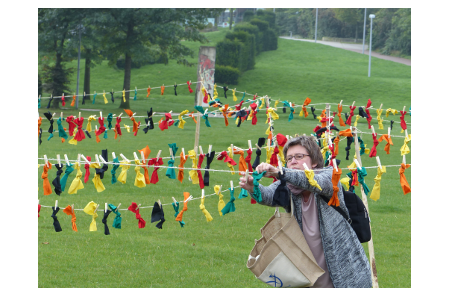People around the world are looking for solutions to our collective issues – from climate change and healthcare issues to legitimacy crises and inequalities. In all these issues, power is at play. Government responses to date, however, have proven insufficient. On the issue of climate change, for instance, we are still a long way from securing an CO2-emissions trajectory in line with the 2015 Paris Climate Agreement to limit global temperature increases to well below 2 degrees Celsius - and preferably to 1.5 degrees Celsius - compared to pre-industrial levels. We believe it’s time for an empowered citizenry to point the way towards a better future and help solve our collective action problem. Does the Conference on the Future of Europe provide citizens with that opportunity? We’ll be keeping this question in mind as we continue to monitor it.
There will be four citizen panels in total, each meeting at least three times between now and mid-January. Each panel will focus on a different set of (sometimes over-lapping) issues. Conference facilitators encouraged the first panel last weekend to discuss what matters most to them and to think about what the European Union (EU) could do about it. They were broken into working groups to discuss a wide range of topics - from the economy and social justice to employment and education, youth, culture and sports, and digital transformations. On Saturday, they met with several experts on these topics to deepen their knowledge, and on Sunday they laid out an initial list of issues they would like to focus on in their remaining sessions.
While it is good to have this broad scope available, we hope citizens aren’t over-loaded with topics to consider in so short a time-frame. To encourage a conversation, rather than a cacophony, it is important to keep a common thread in mind across these diverse range of issues: the question of power. Those participating in the Conference should have the opportunity to reflect on the question of power, in their own terms, and to discuss what impact they can hope to deliver through their intervention. All politics mobilizes power in some way, as various individuals and interest groups struggle to advance their respective agendas. The Conference was formed in the hopes of strengthening the voice of citizens, with the motto; “the future is in your hands”. Citizens have been asked to participate and deliberate, to give their input, but with so many topics to discuss in so short a timeframe, will citizens be able to form recommendations commensurate with the challenges we face? More importantly, will they be empowered to see their recommendations through? Will the EU institutions and Member States appropriately follow-up on them?
For this Conference, citizens were chosen at random with regard to certain selection criteria, to achieve a broadly representative sample of the entire population of the European Union with an emphasis on youth. The five criteria for selection were: geographic origin (nationality and urban/rural representation), gender, age, socioeconomic background and level of education. Furthermore, young people (between 16 and 25 years) make up one-third of each panel. Such affirmative action echoes the idea of affected-led governance – the idea that those who are most affected by an issue should be directly involved in the governance of that issue. Also reflected in this process of stratified sortition is the idea of democracy elaborated by Jacques Rancière, understood as a “law of chance” and “the government of anyone and everyone”.
Complementing the citizen panels, an open Digital Platform has been available to the public, who can suggest policy proposals for discussion, some of which will be fed into the Conference: https://futureu.europa.eu/. 80 citizens (20 from each panel) will go on to join the Conference Plenary, composed of a total 433 members in total to turn their ideas into concrete policy proposals. These will be compiled in a report presented to the Joint Presidency of the European Parliament, the Commission and the Council, who are expected to take appropriate action…
But what if they don’t? That’s why it’s important to both monitor the process of the Conference and to develop the power of civil society at large. We have created this diagram to provide an overview of the structure of the Conference.

The reason we are gathered here for the Conference – the reason so many are interested in what happens there – is that the status quo is not working. We have a dire collective-action problem. We need new ways of doing things. That is why “the future is in your hands” is exactly right. This weekend’s session (24th – 26th of September) kicks off with the second citizens’ panel discussing democracy and the rule of law, values and security. We’re especially curious to see what citizens will have to say about democracy and how to achieve a more democratic and equitable society – and we’ll be updating you with a recap on Monday!
Watch it live (or recorded) over the weekend here: https://audiovisual.ec.europa.eu/en/ebs/2/20210924
We see the Conference as a kickstart to the much-needed, long-term democratic reform of the EU. Many of the proposals from the citizens’ panels, as well as a large sum of the inputs submitted on the Digital Platform, are likely to require treaty change. The Conference should therefore task itself with assessing this need, in accordance with the inputs gathered across the Citizens’ Panels and, if proposed by the citizens, should integrate the call for treaty change in its final report. A Convention, operating under the same guiding principles as the Conference, should initiate the modification of the treaties, in accordance with Article 48 of the Lisbon Treaty.
For a more detailed analysis of the Conference, see Fabbrini, F. (2021). The Conference on the Future of Europe: Process and prospects. European Law Journal, https://doi.org/10.1111/eulj.12401

